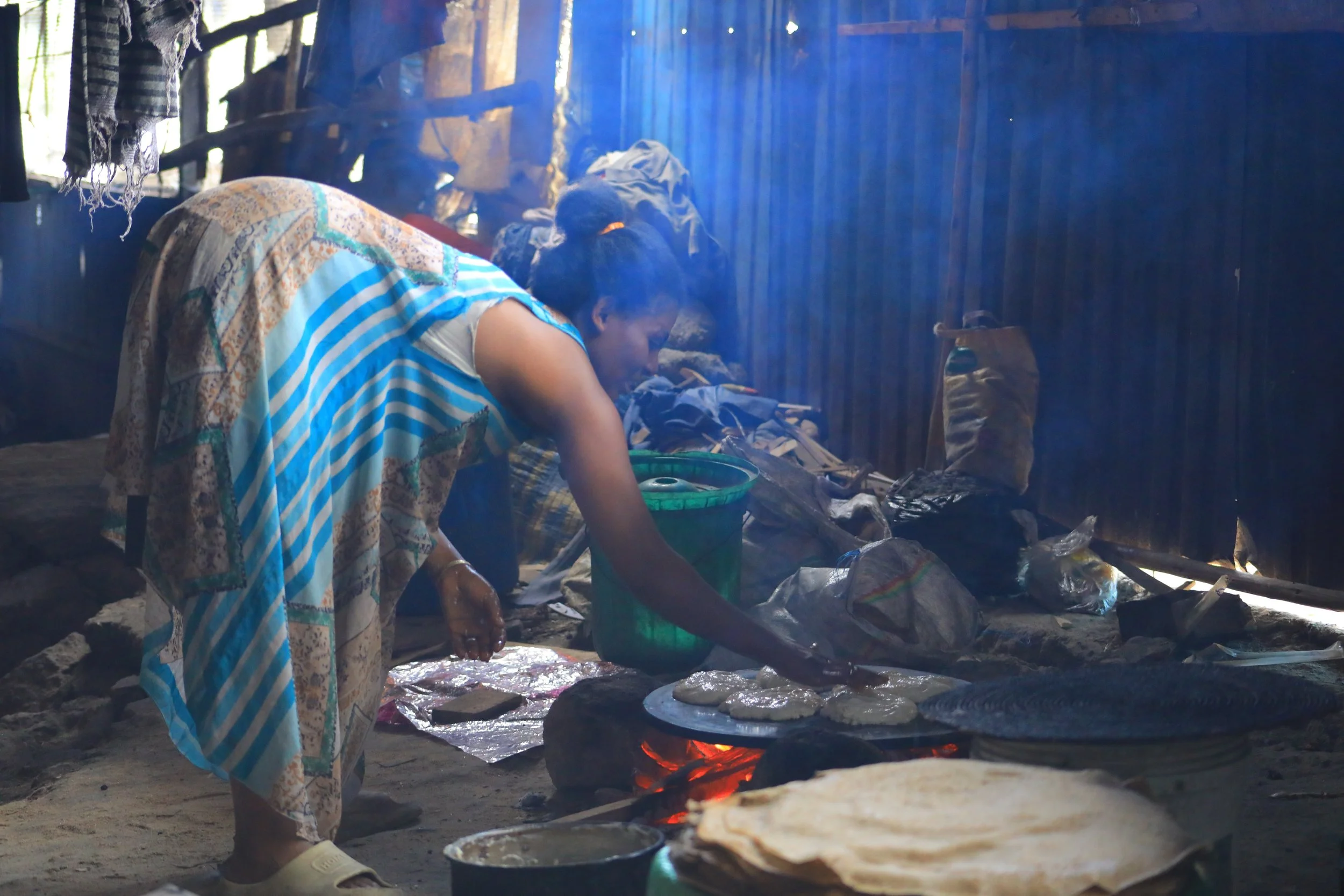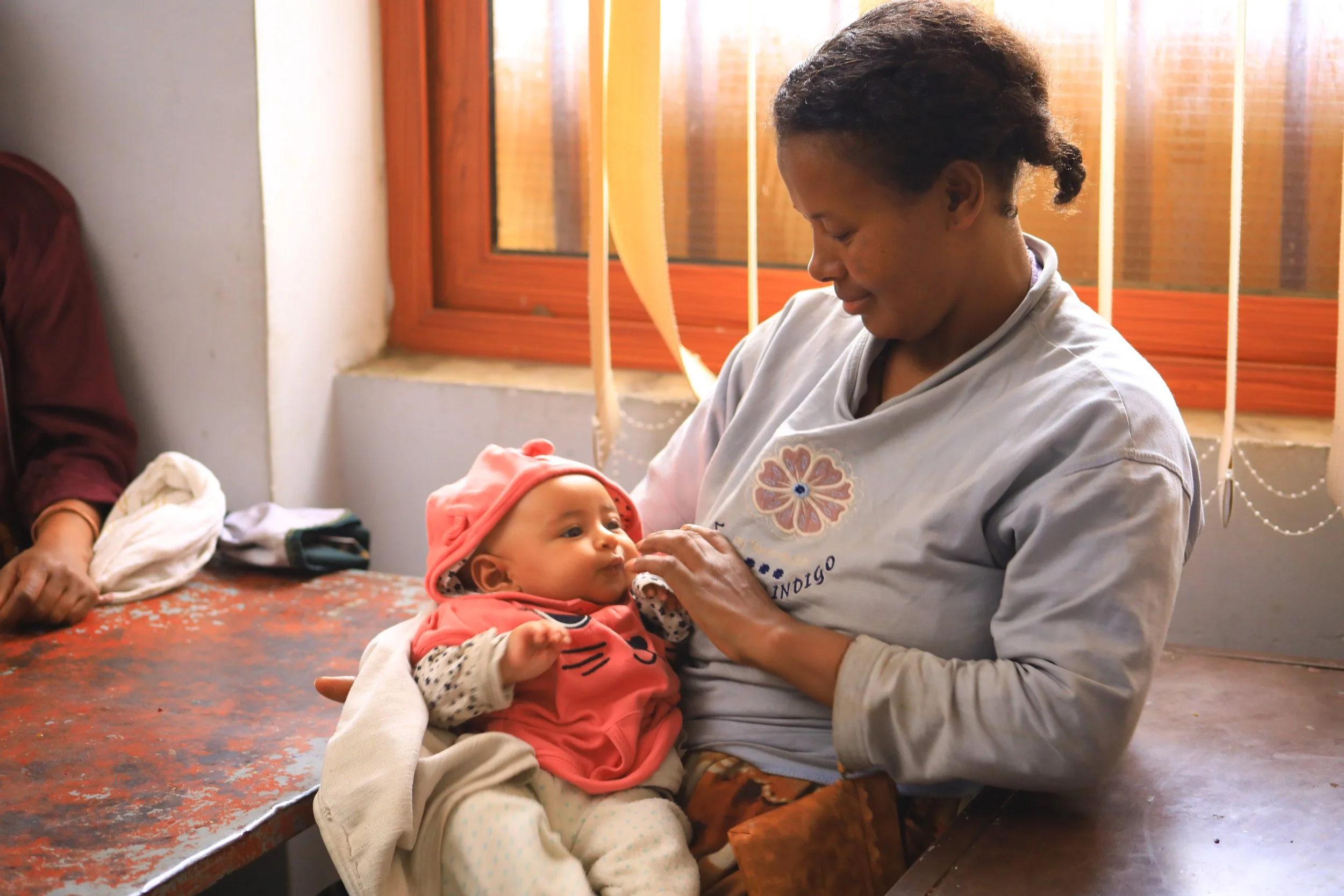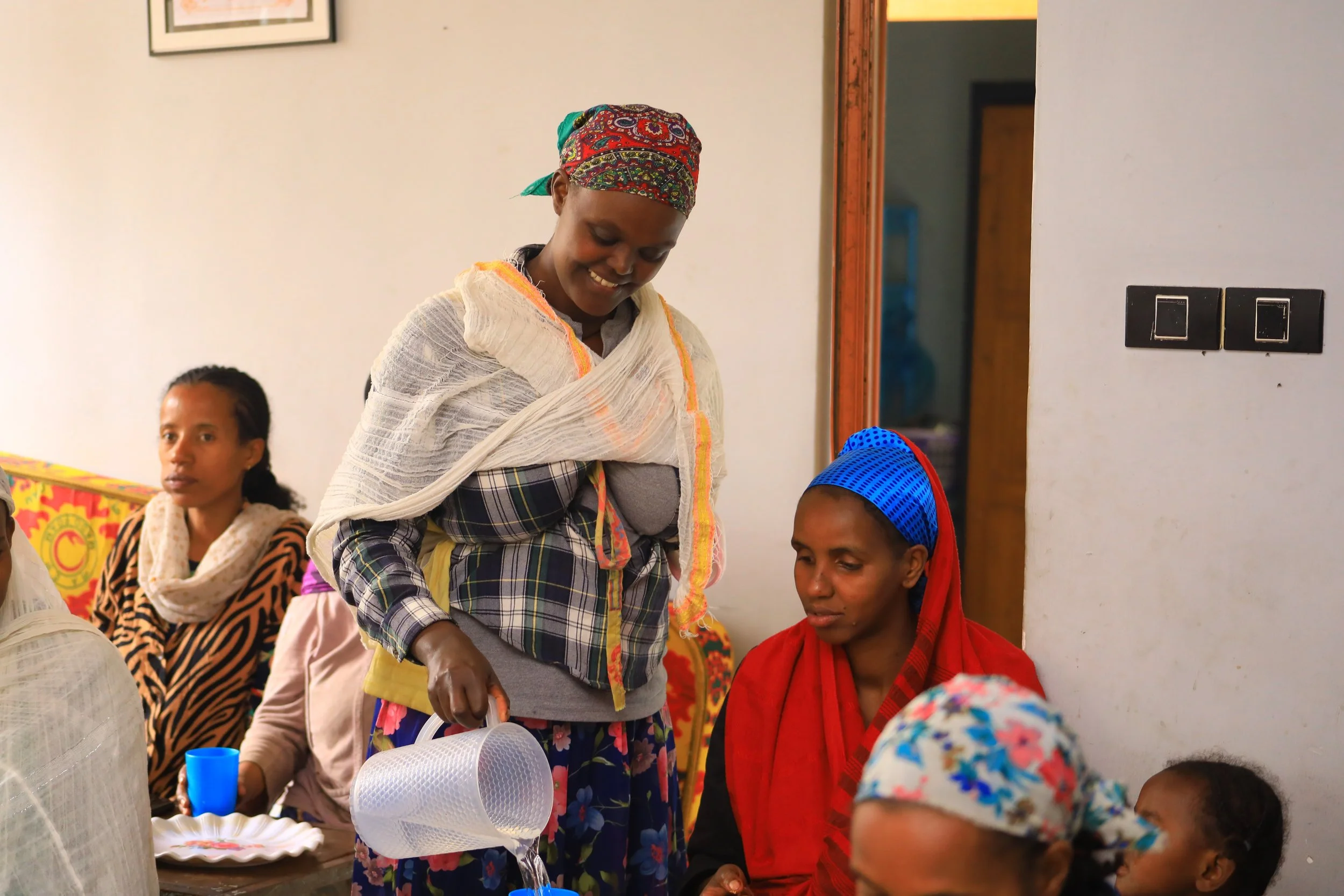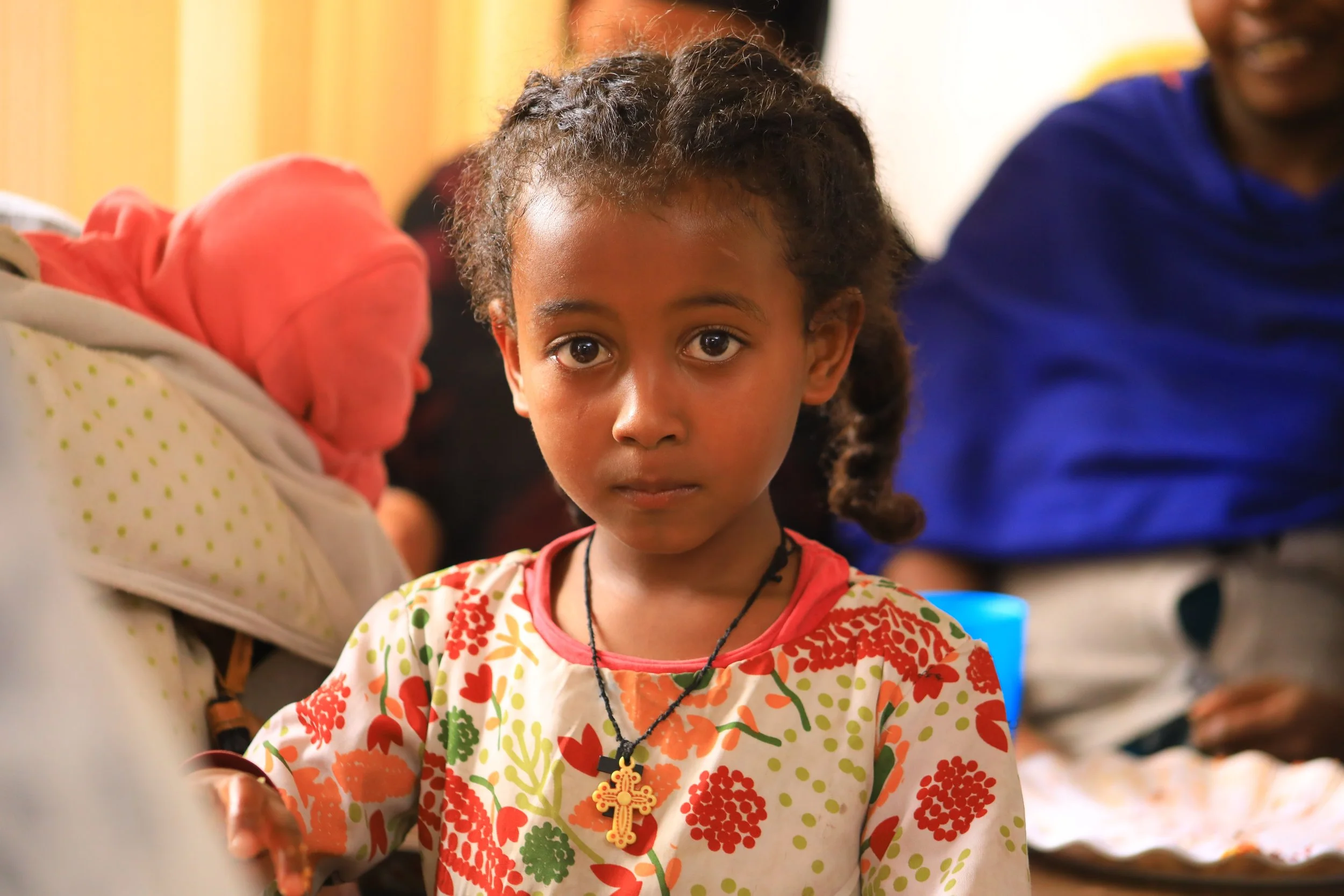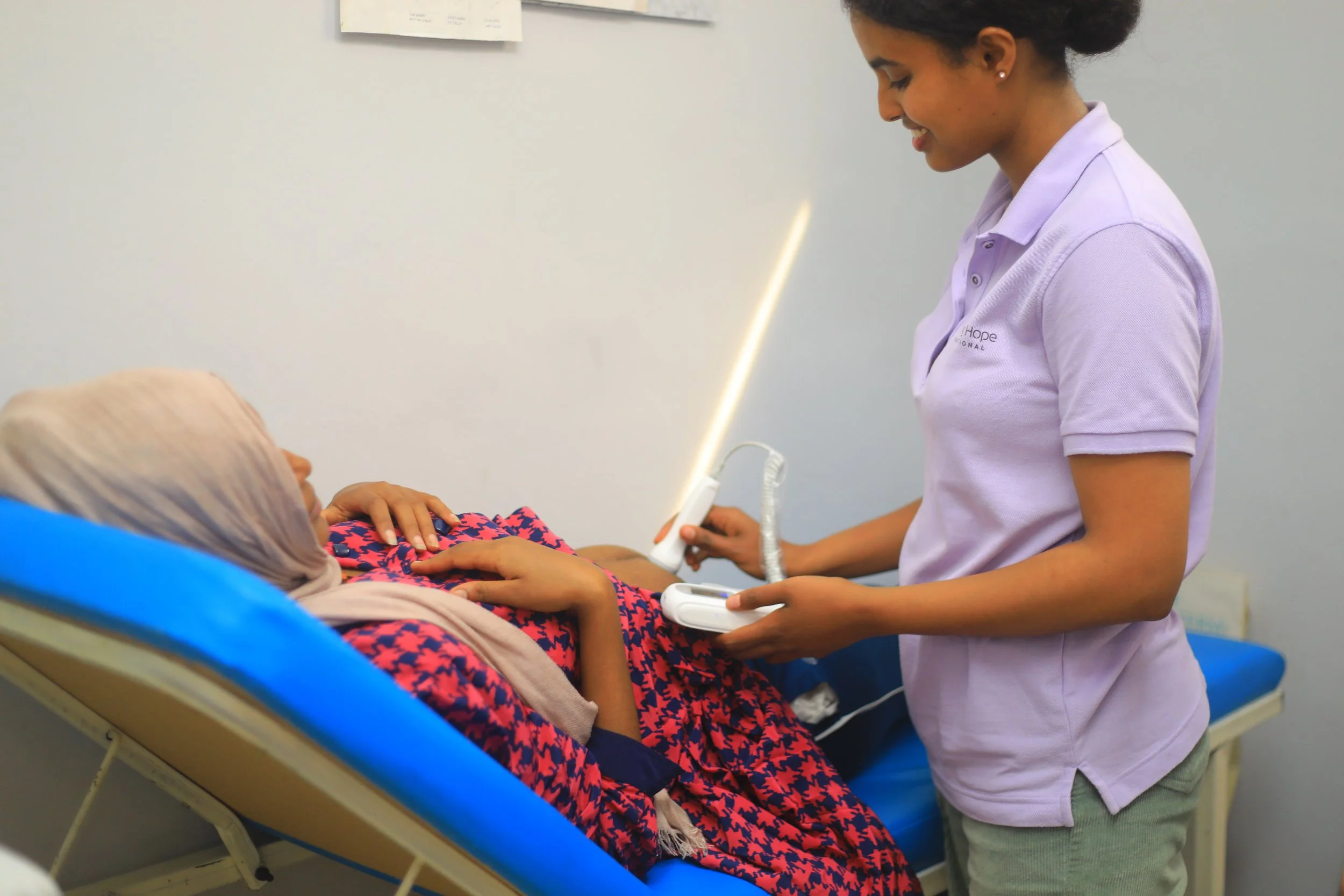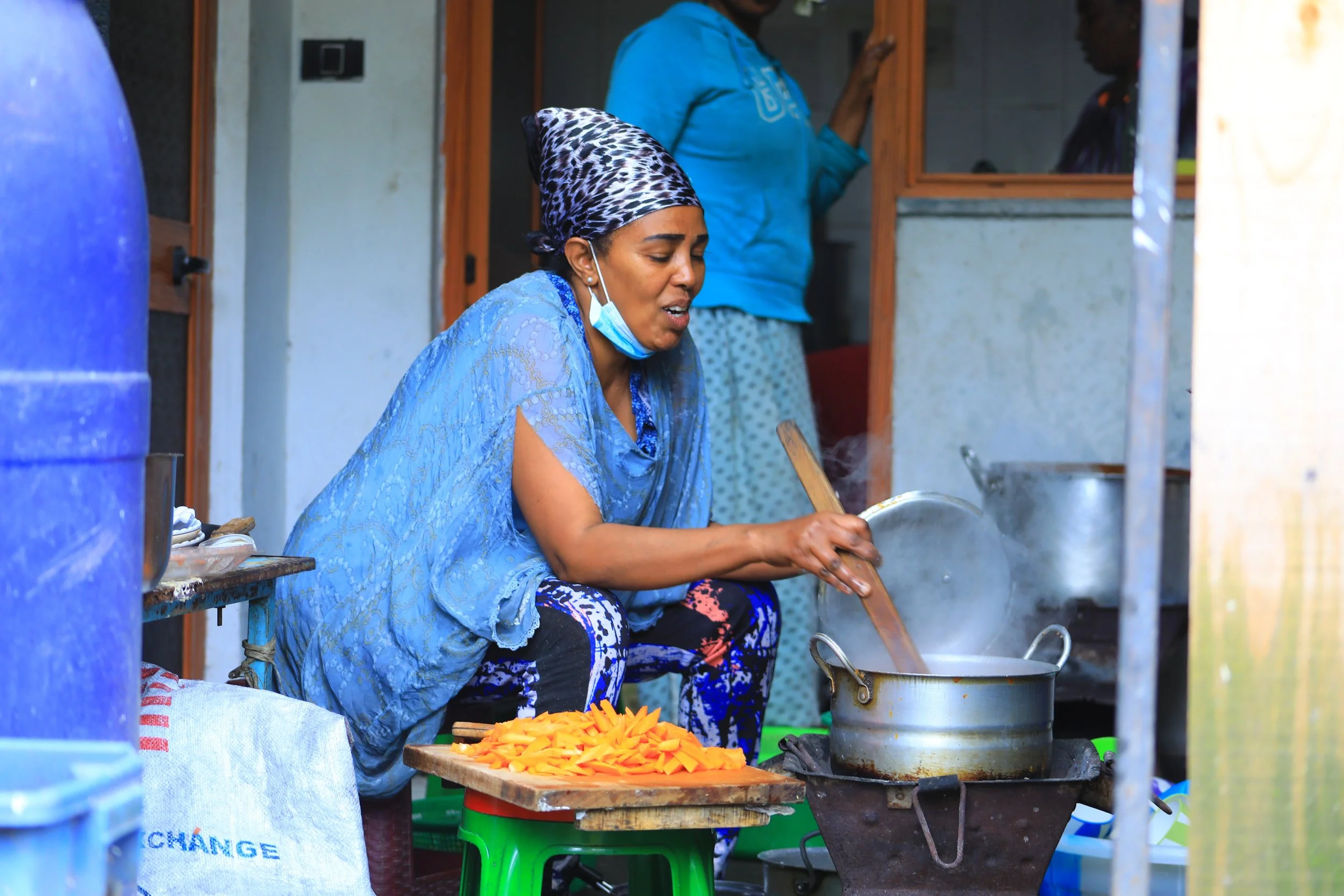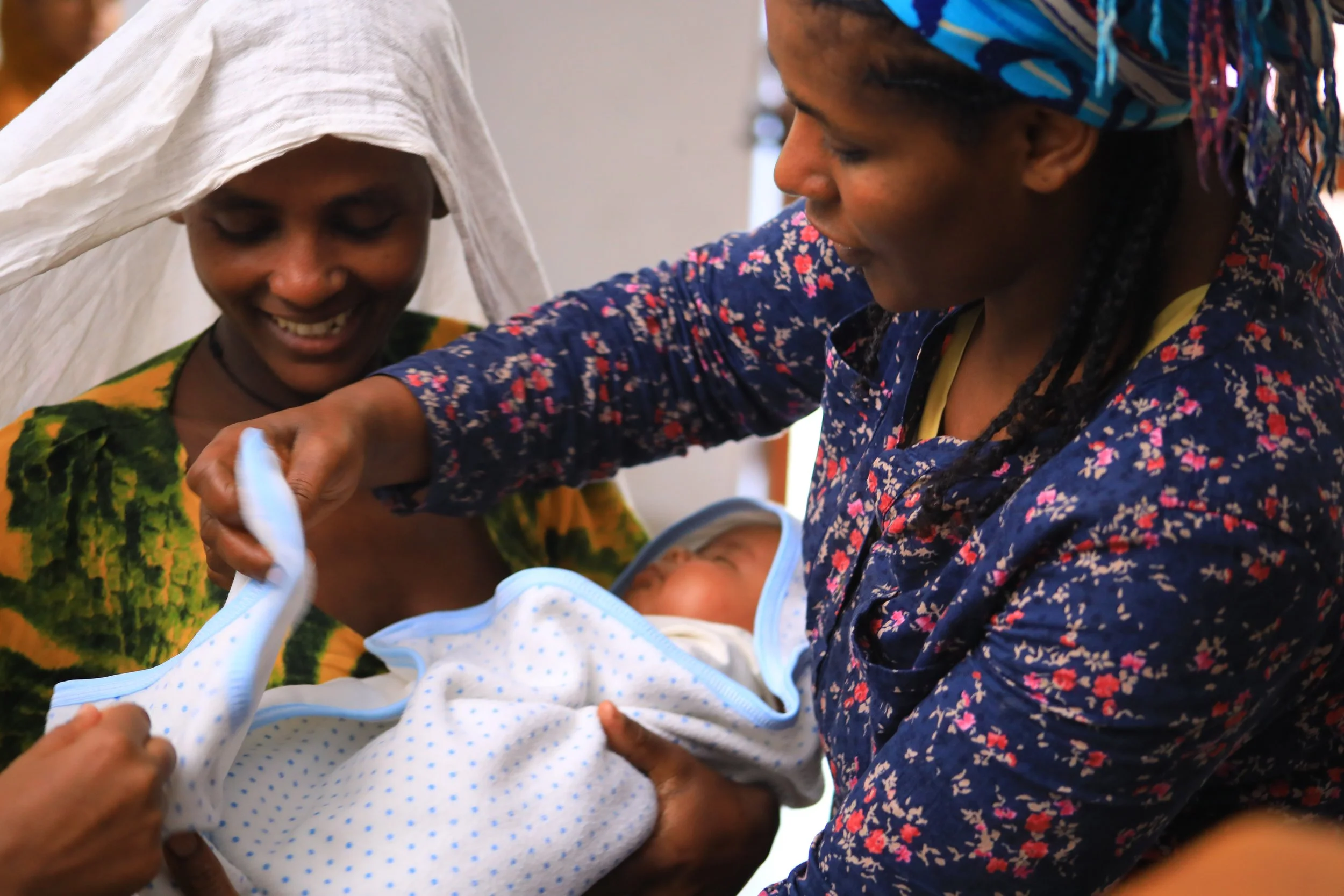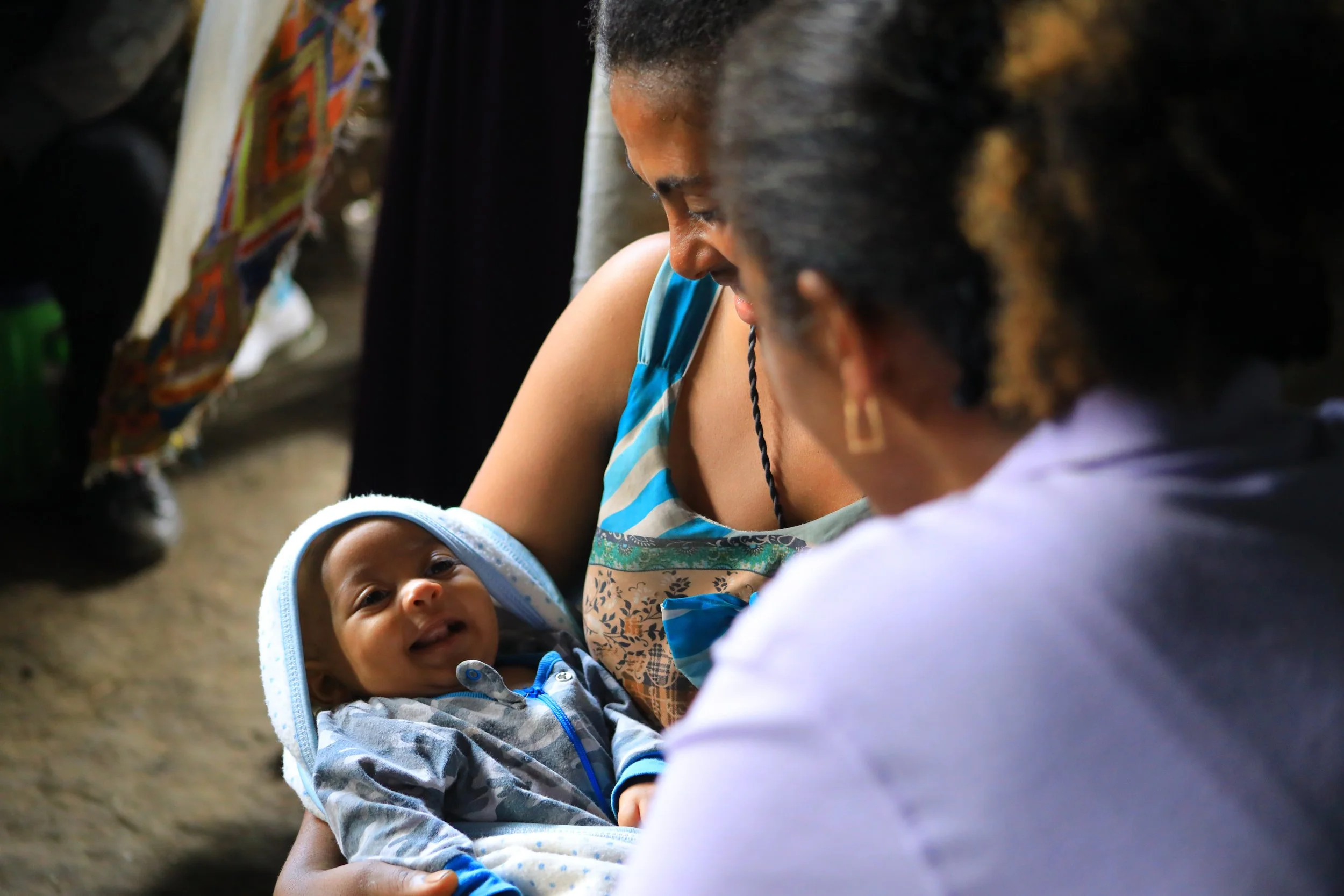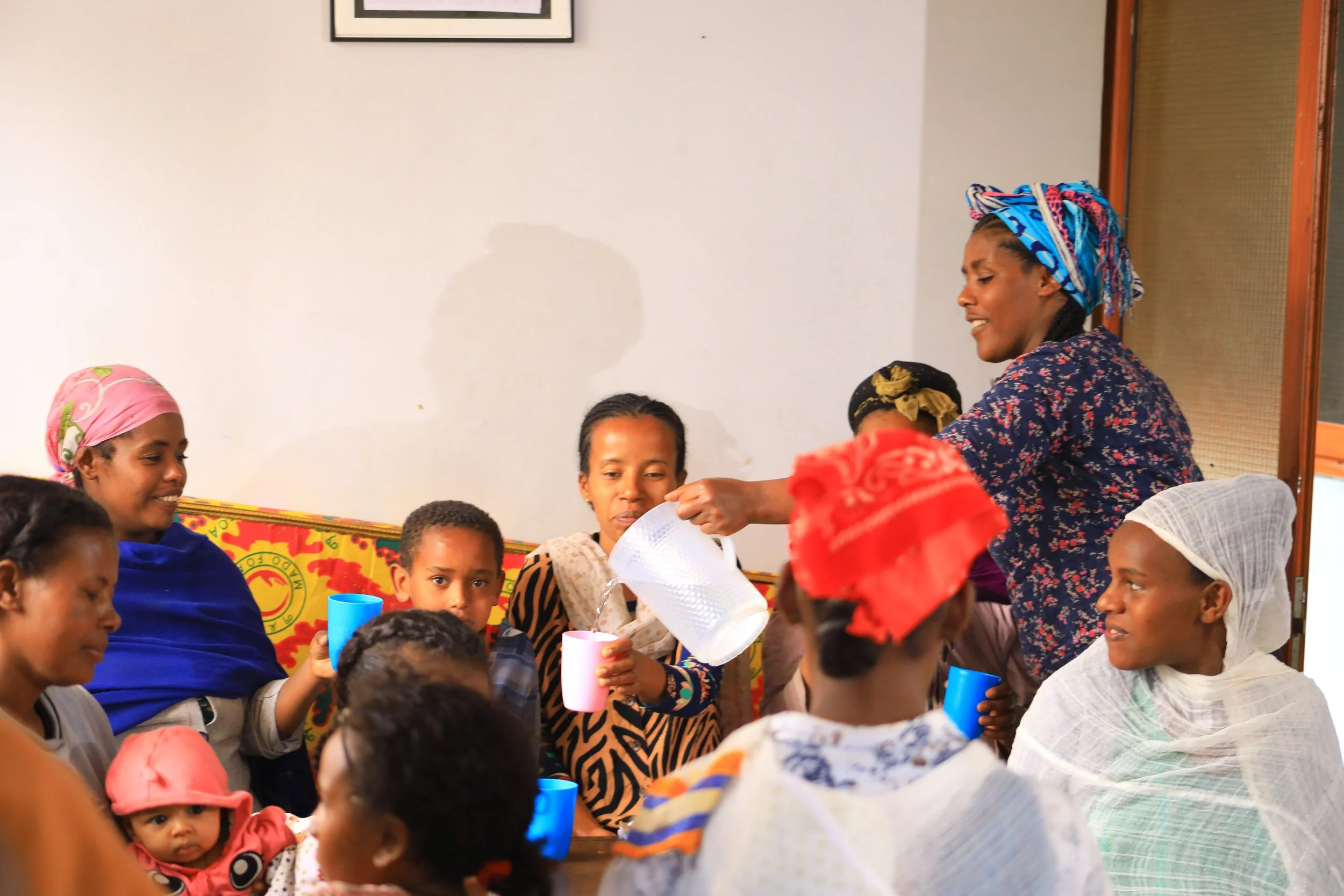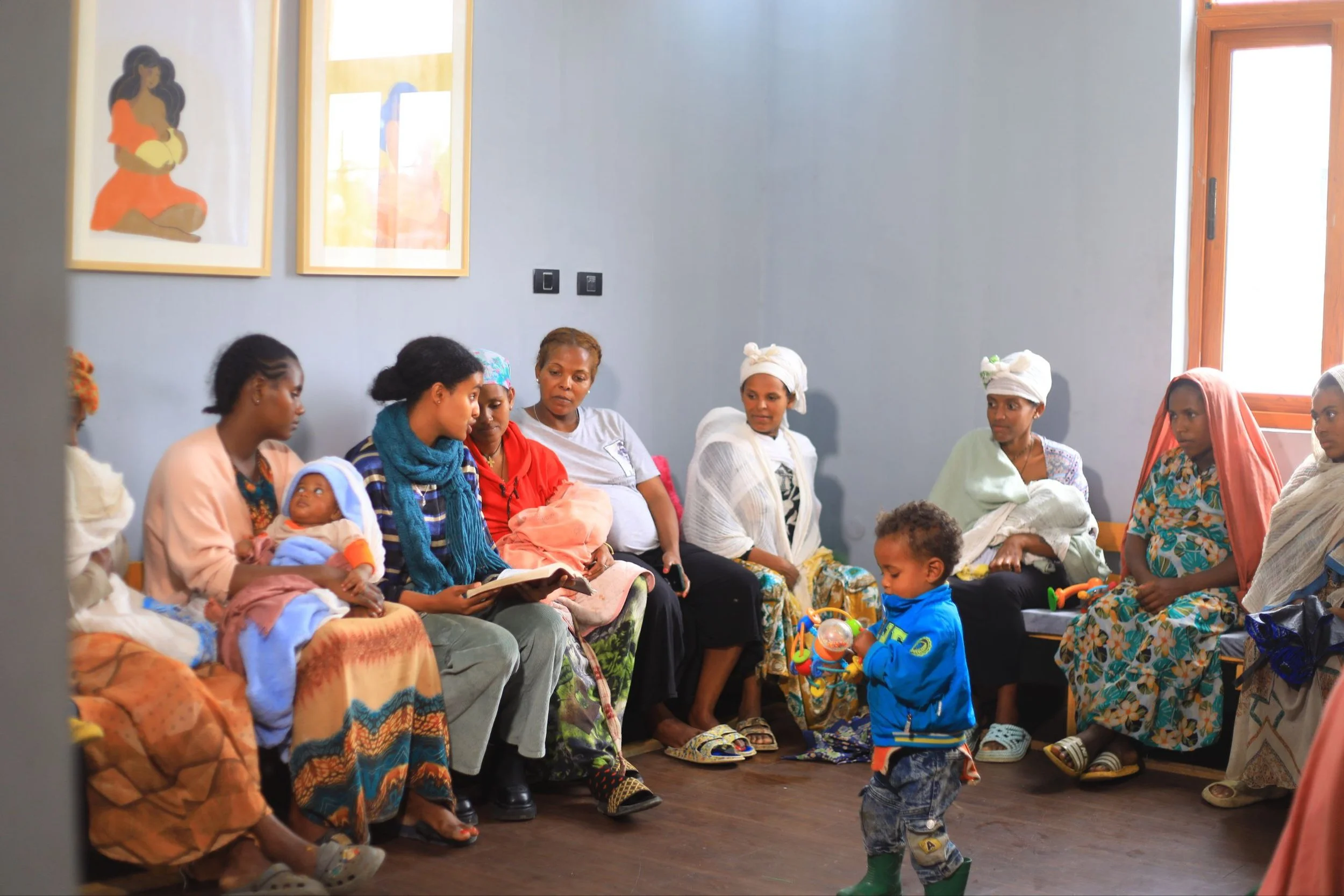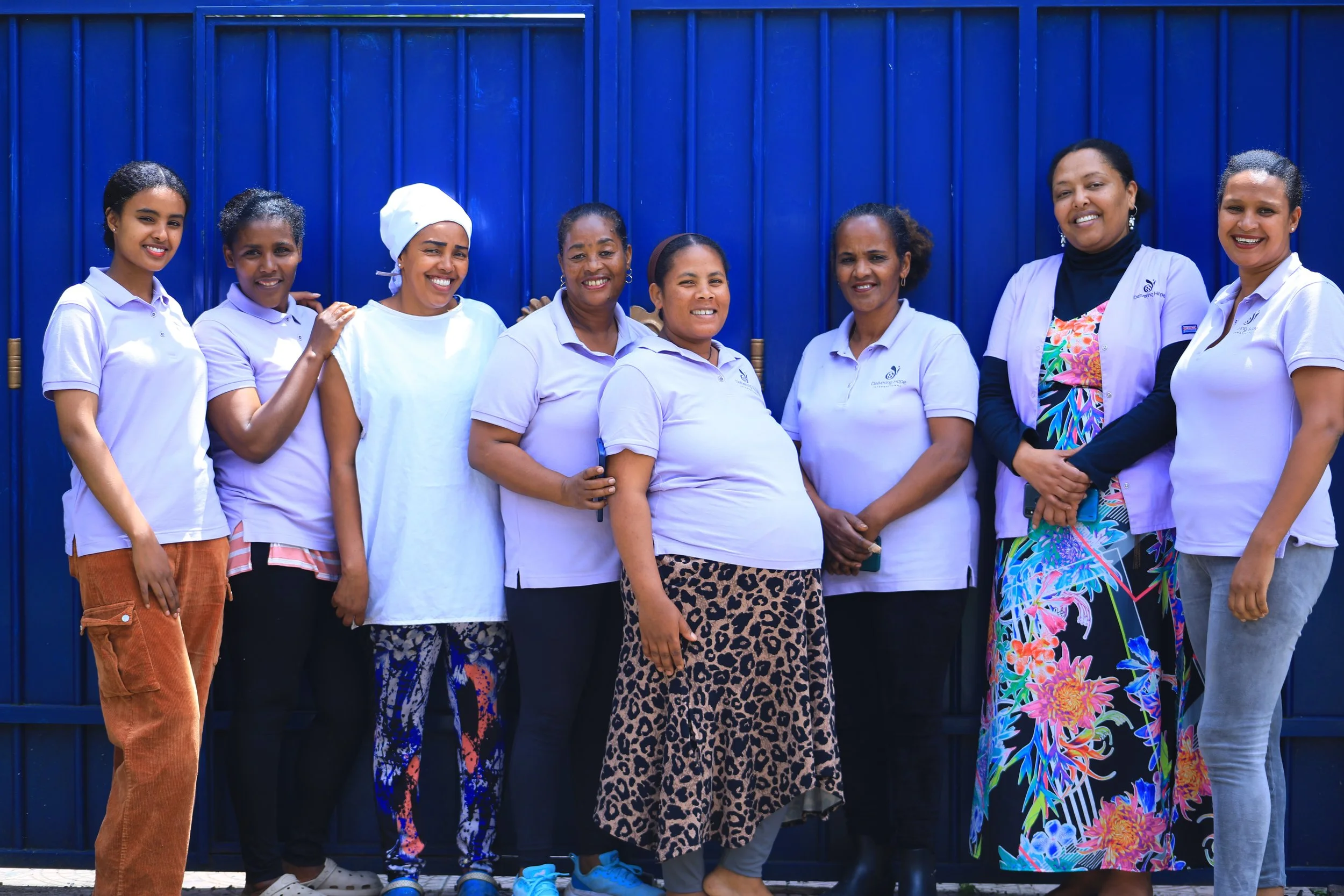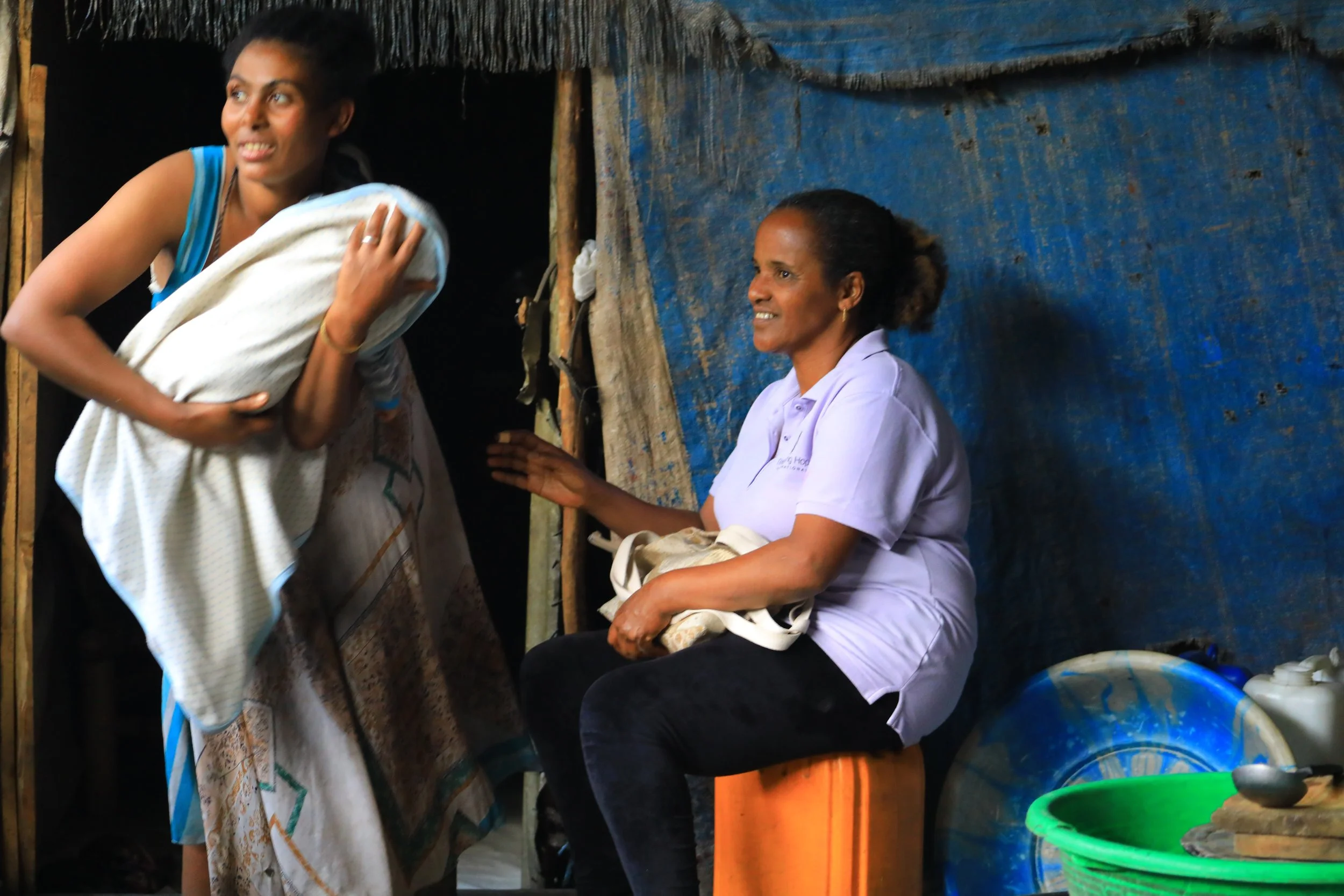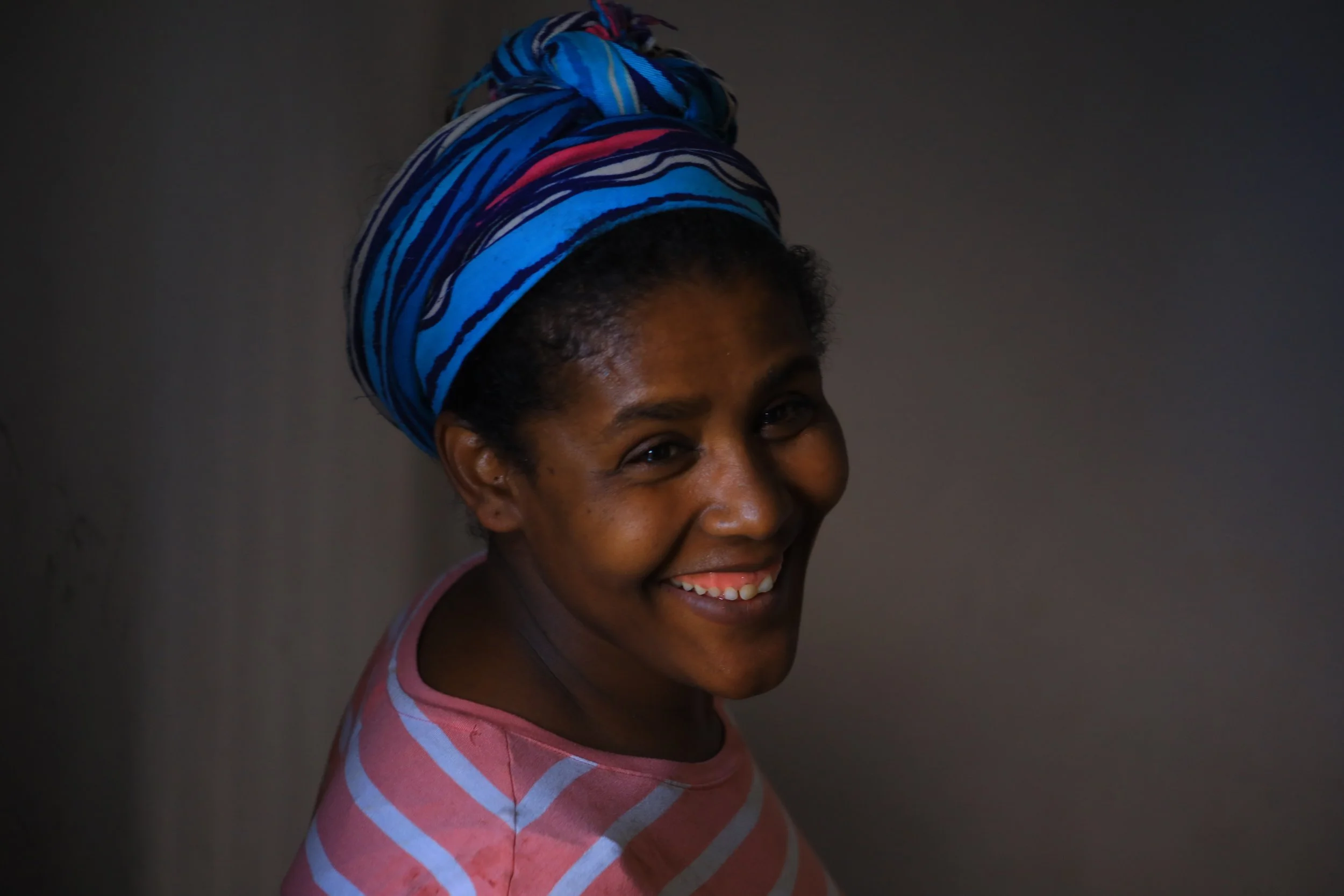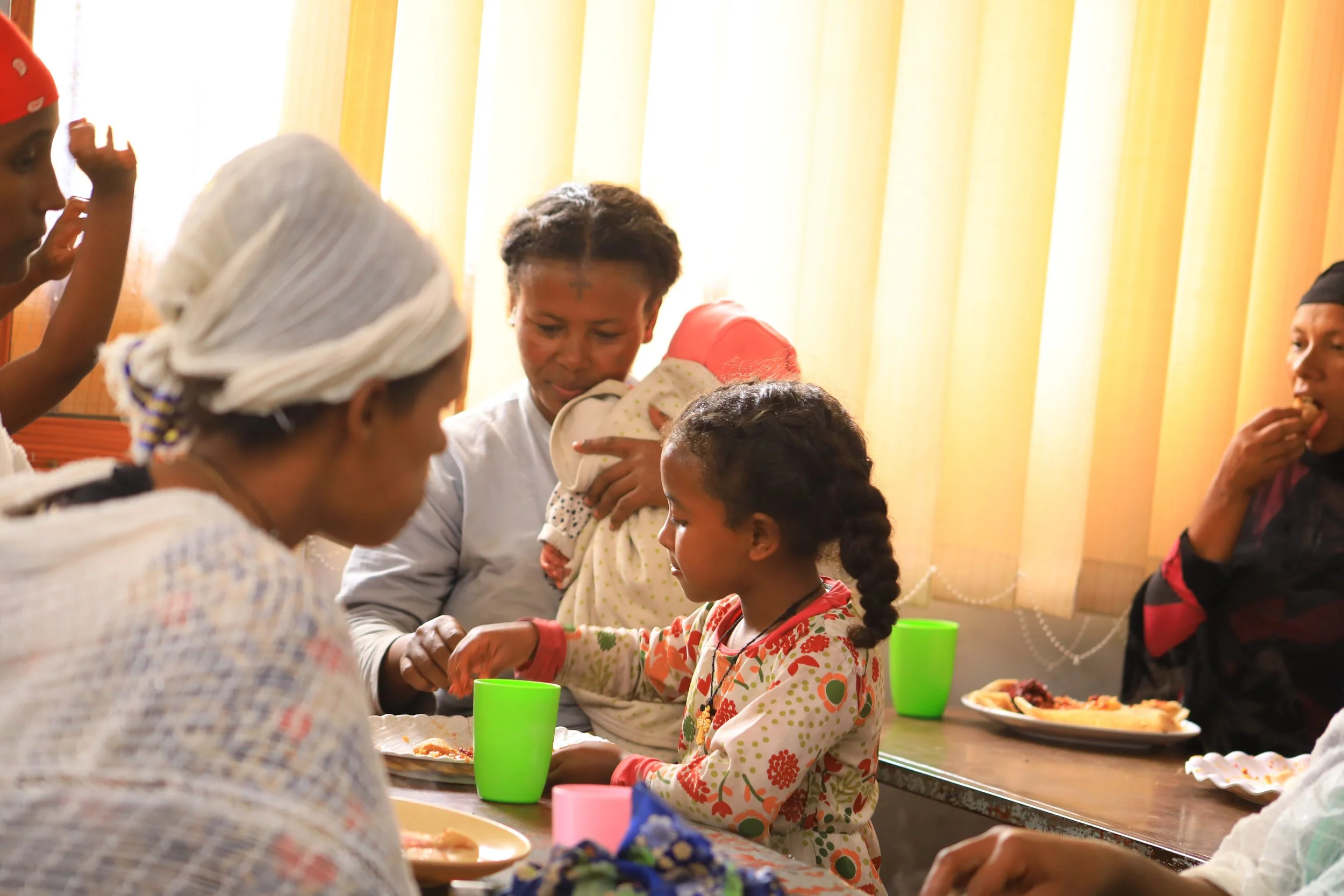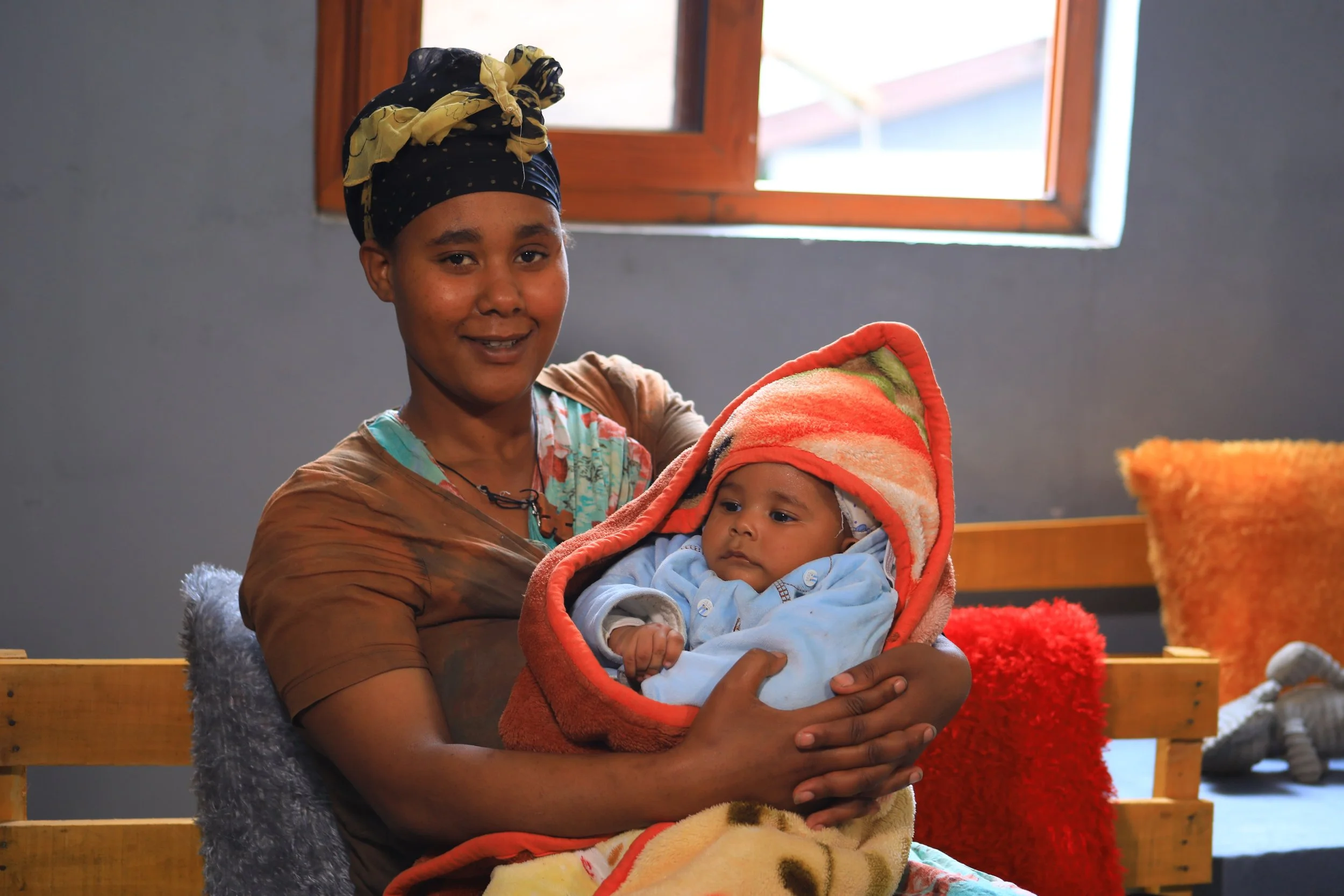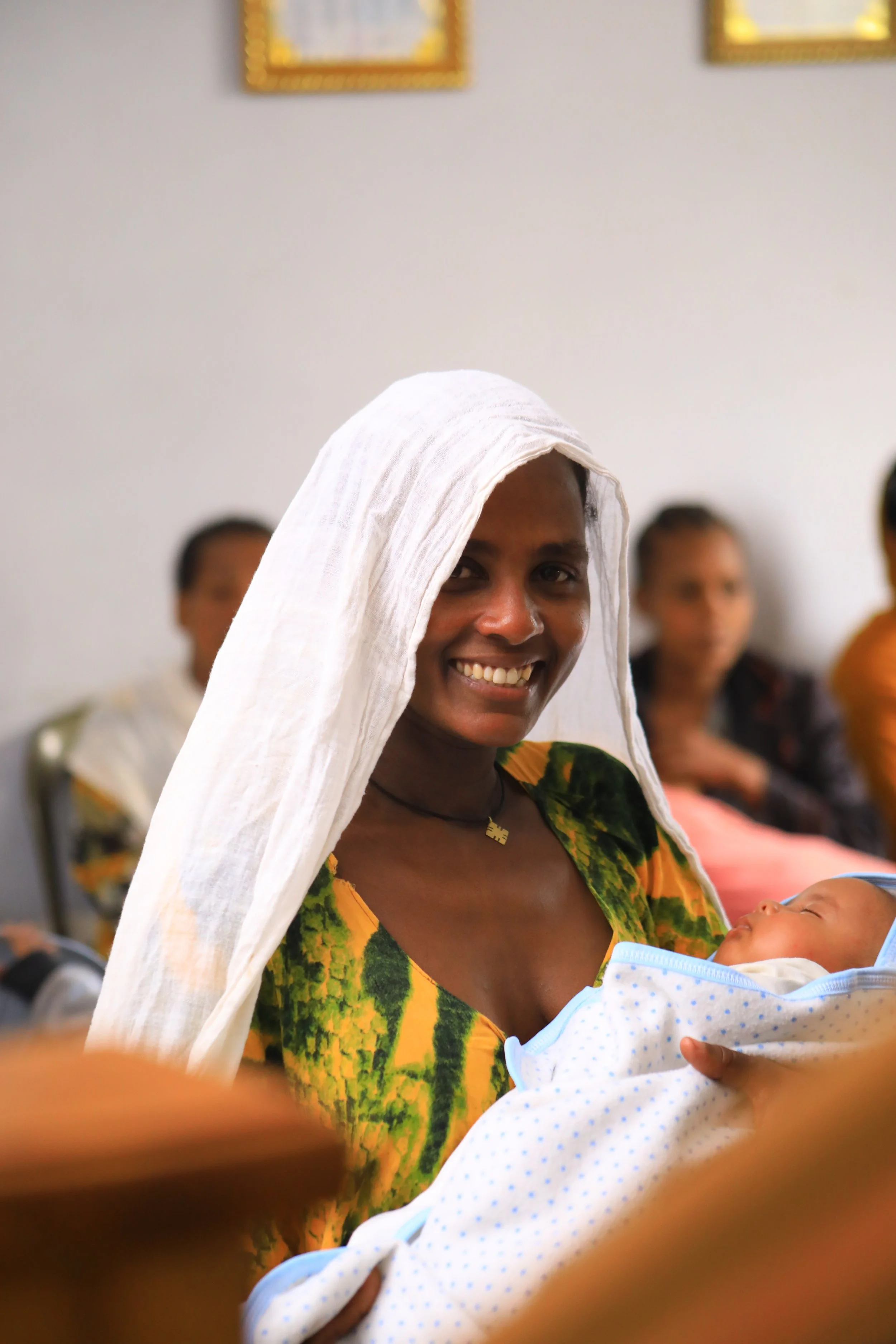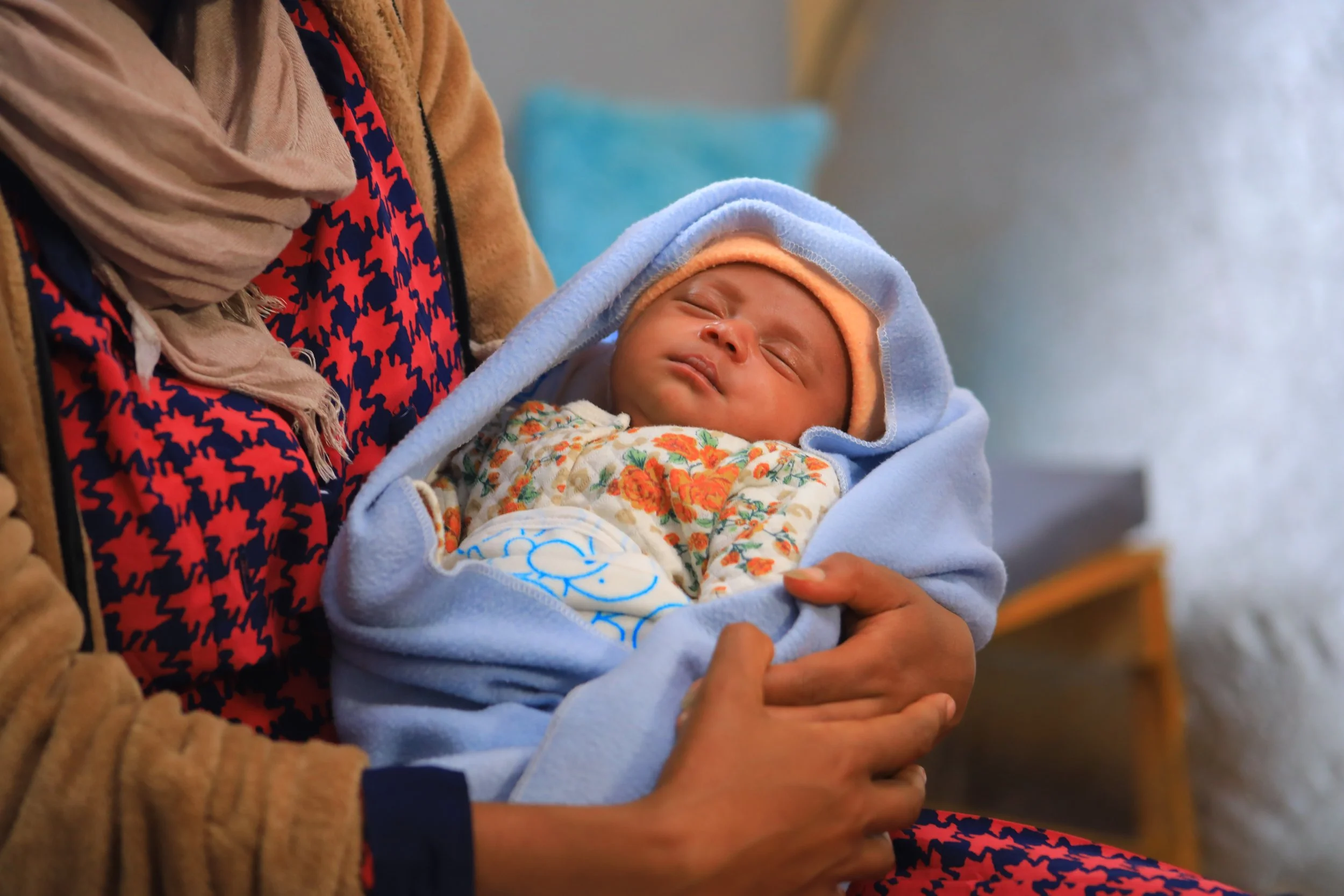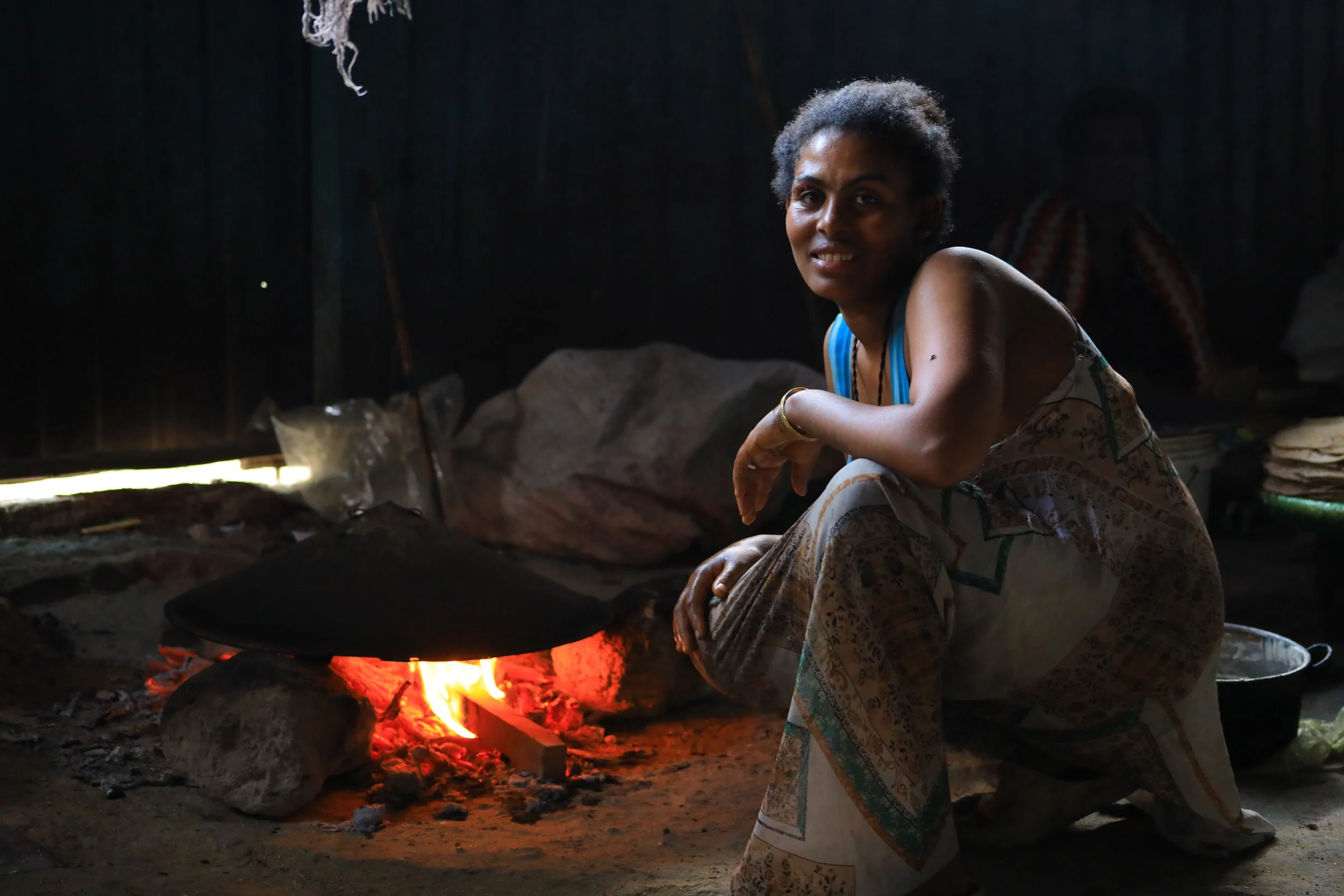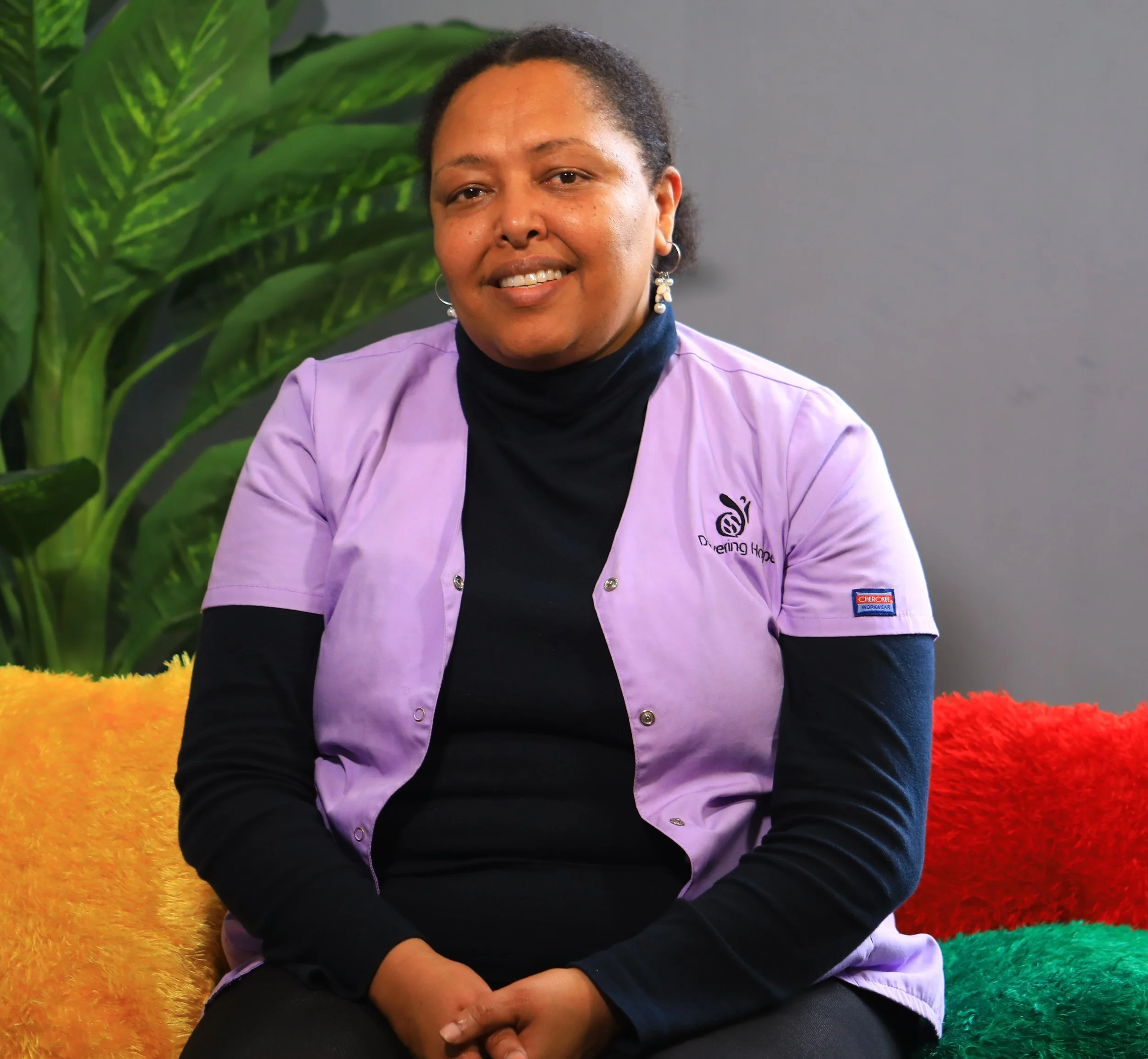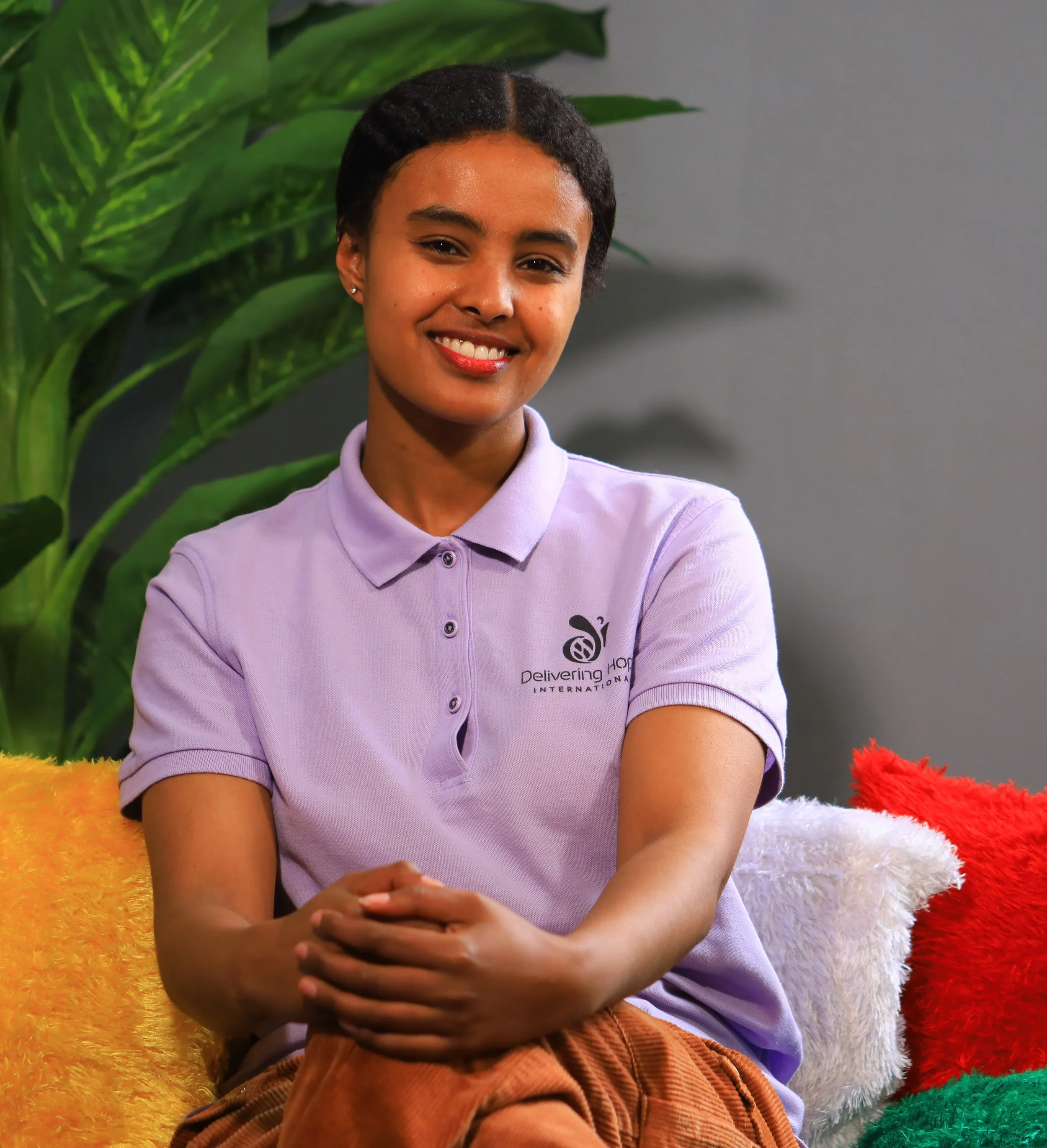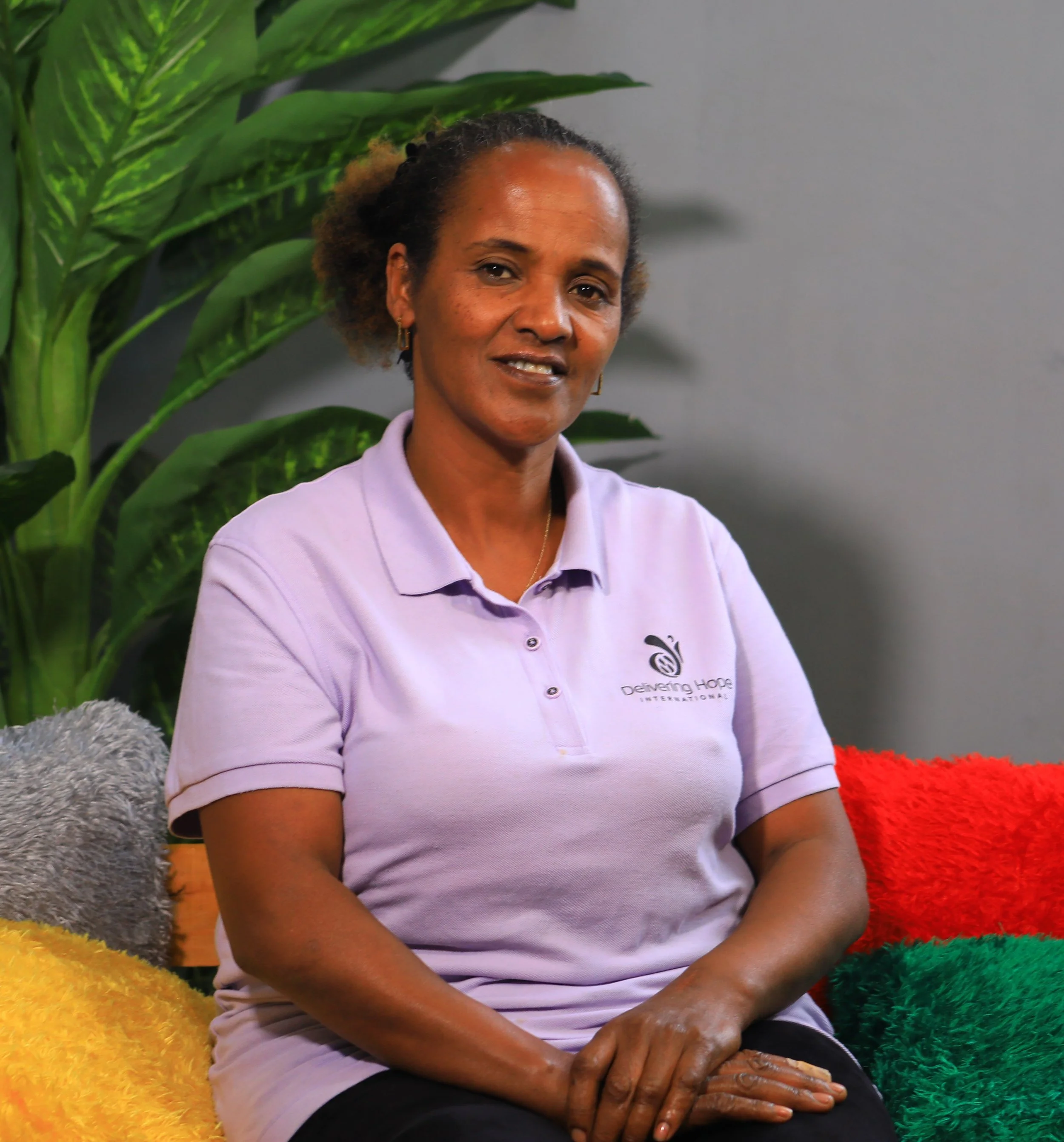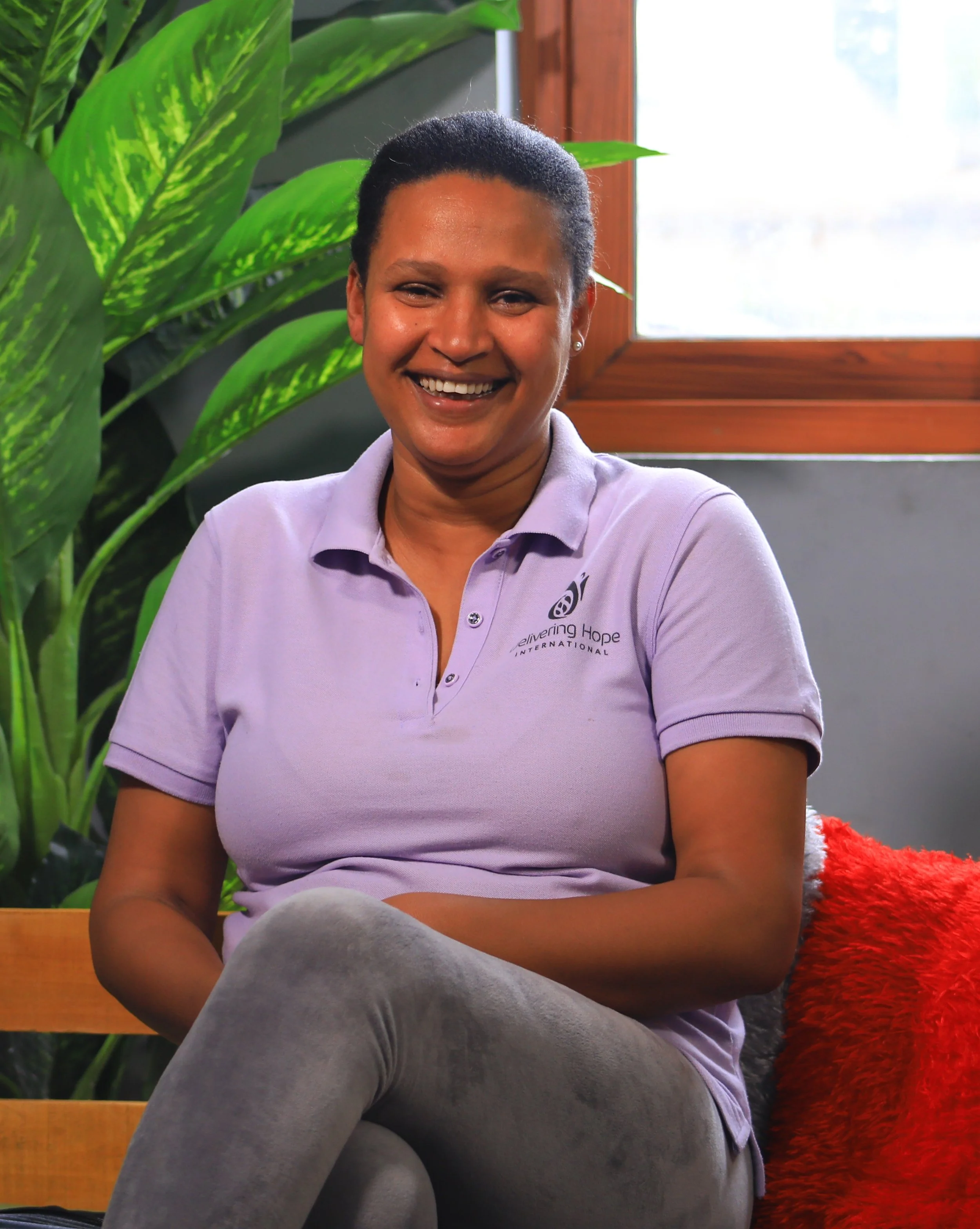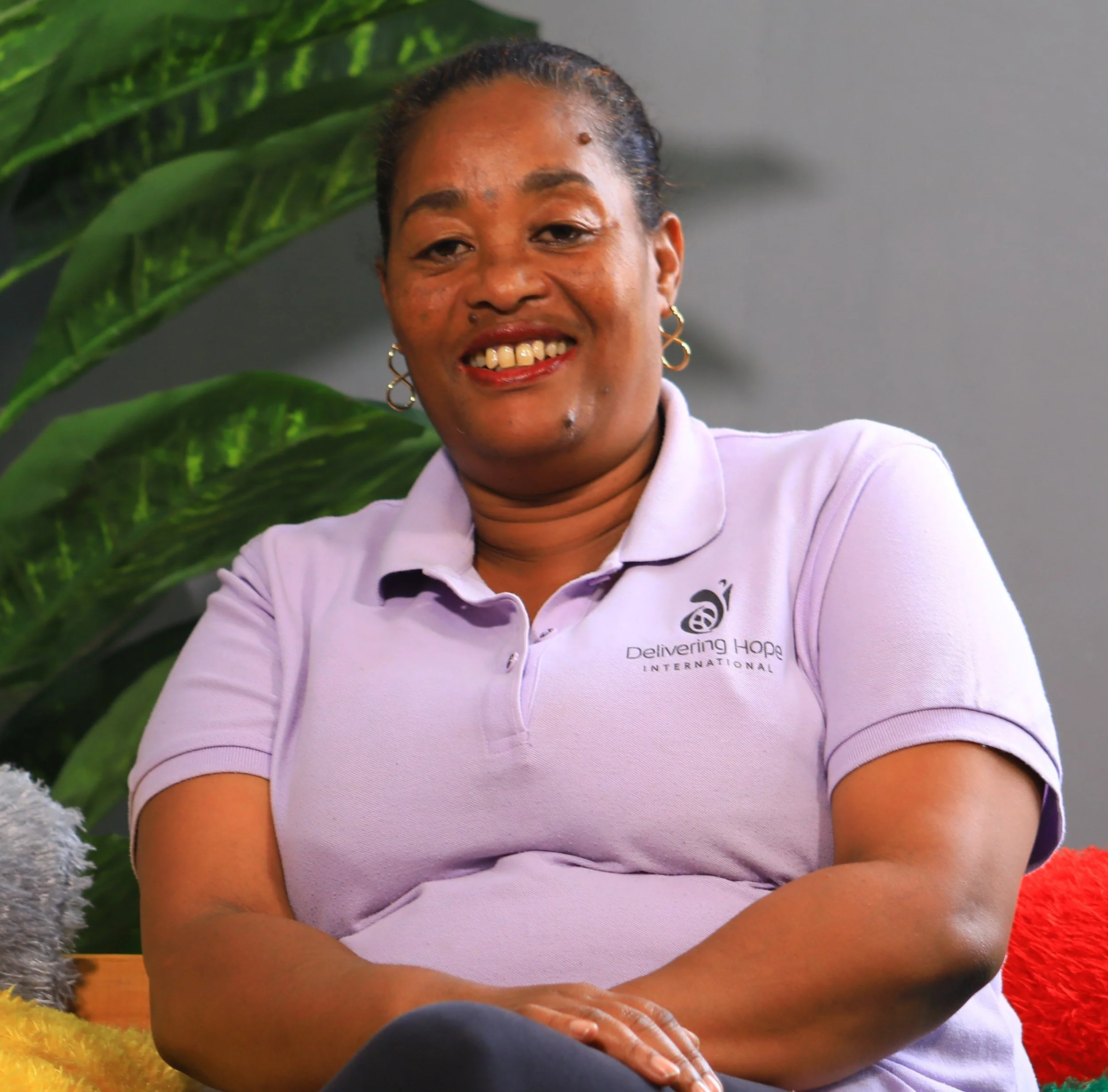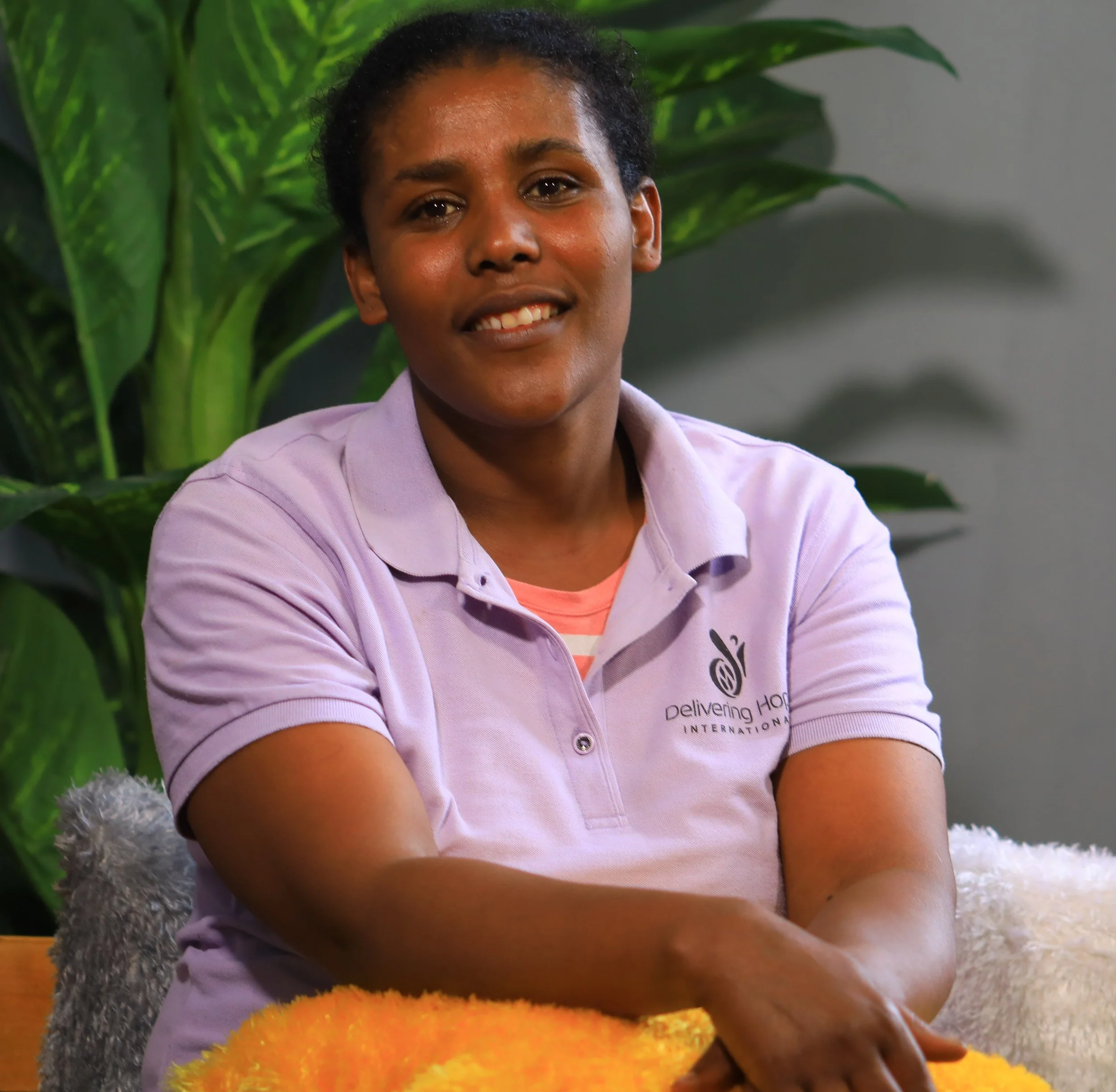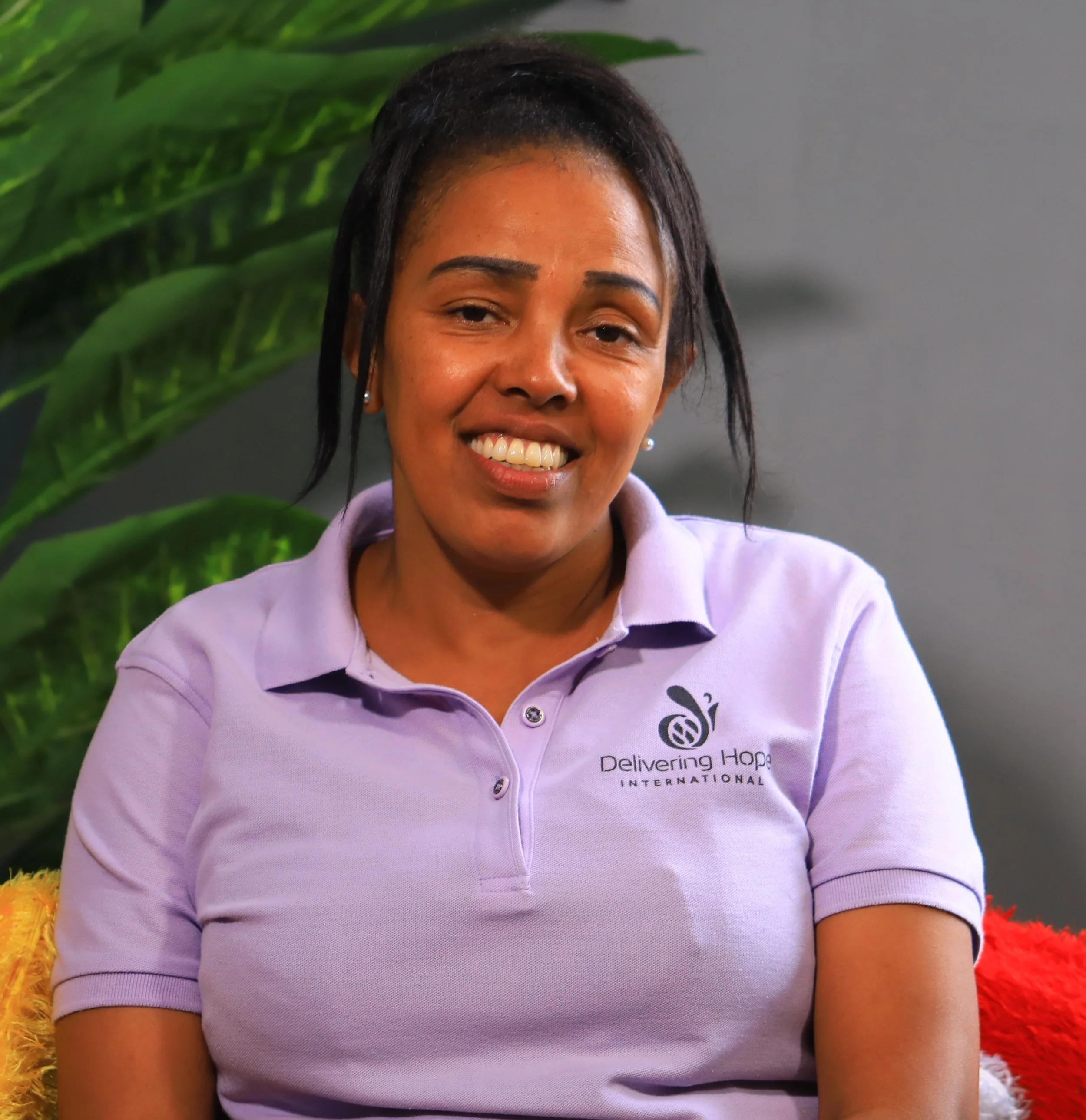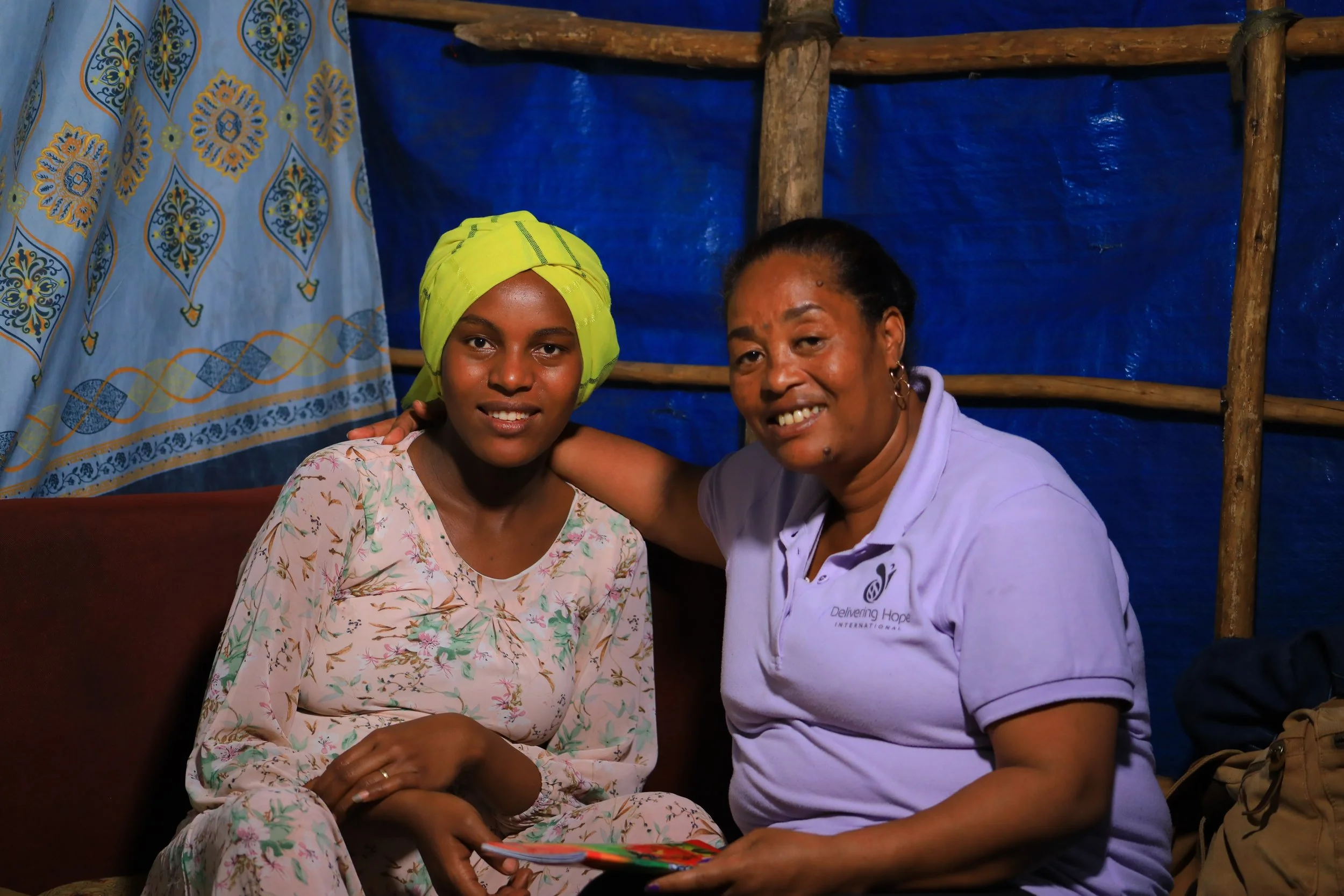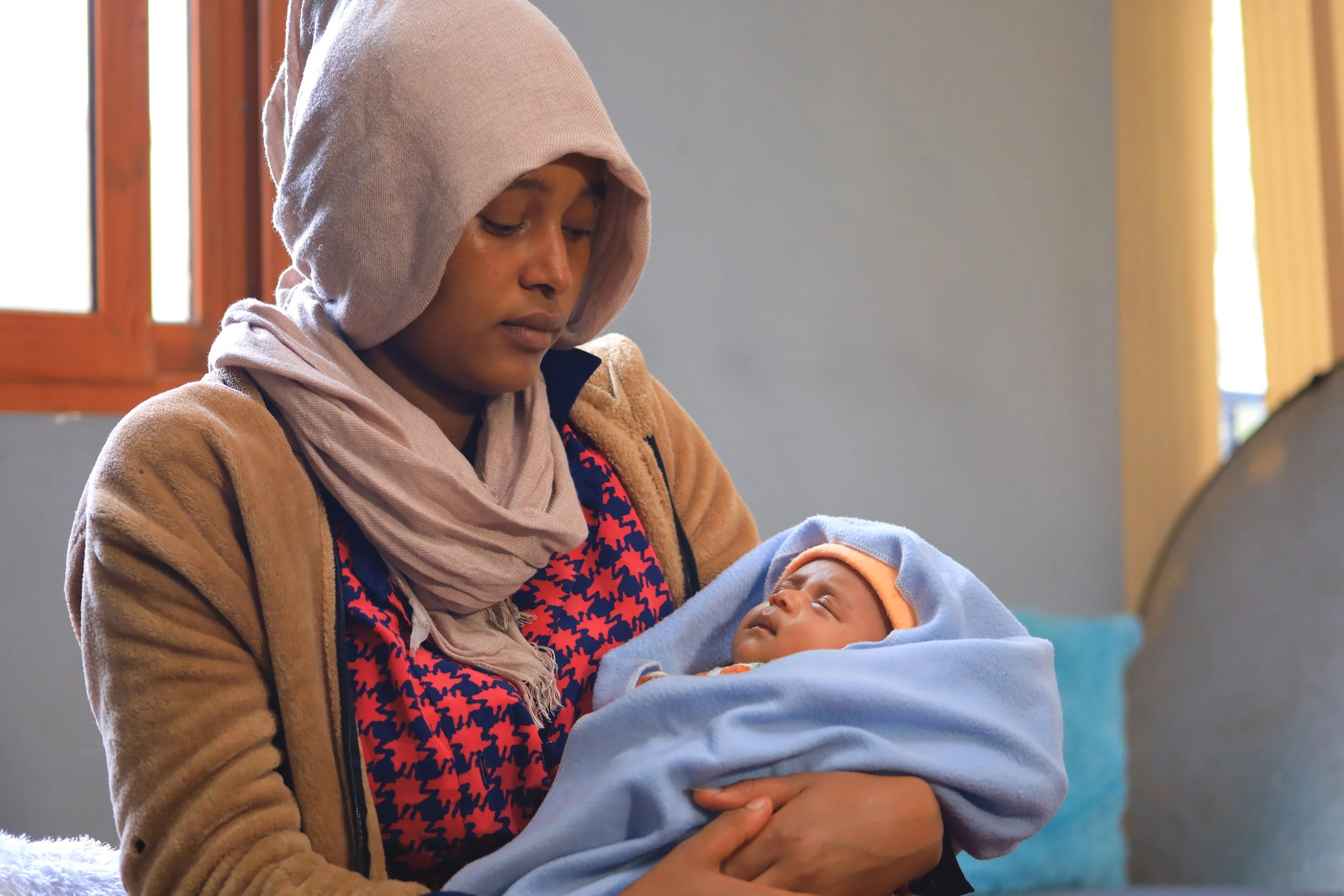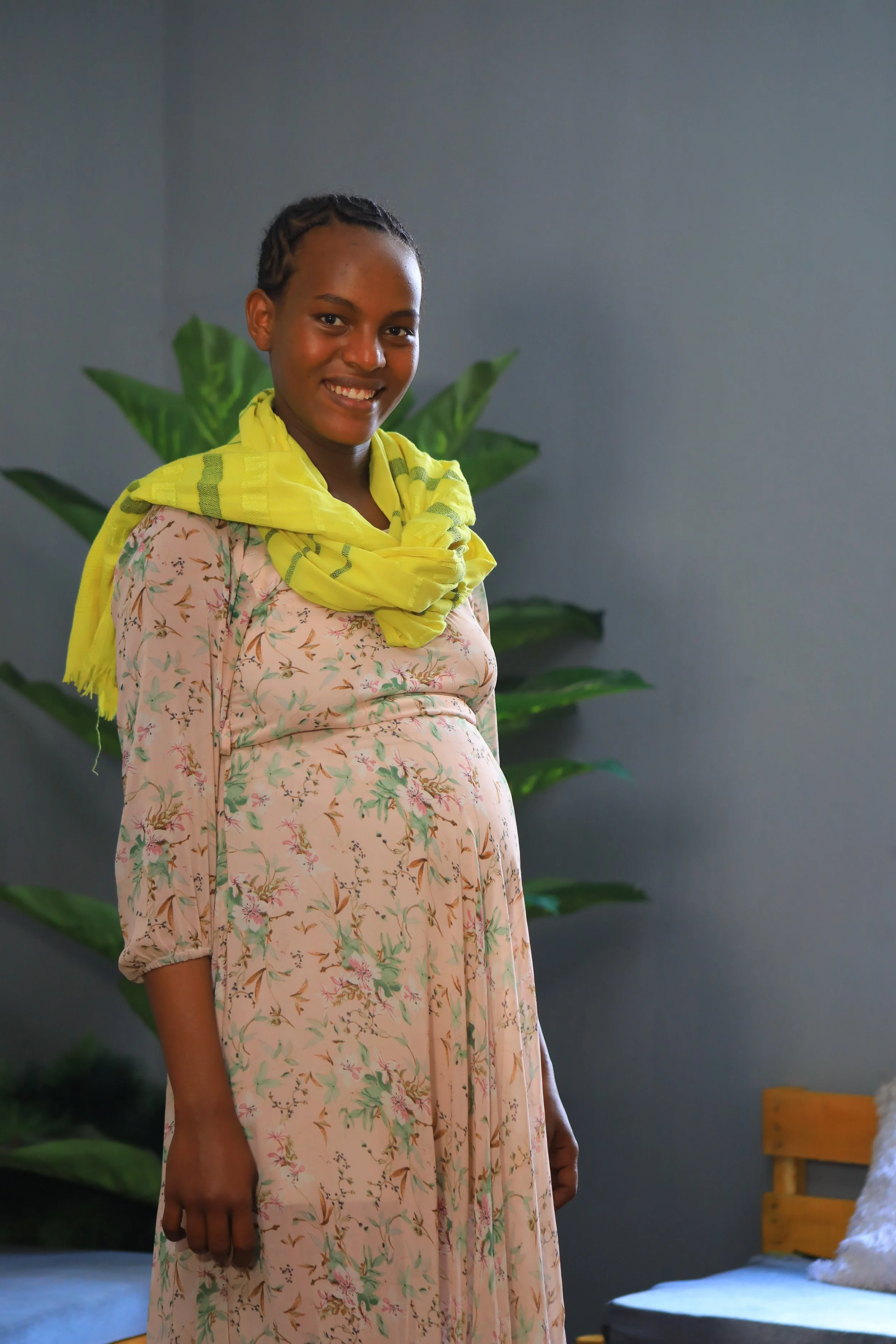Saving mothers. Preventing orphans. Bringing hope.
Every two minutes a mother dies from preventable causes related to pregnancy and childbirth. She leaves behind her children - a newborn who is less likely to survive her first month and older children who will no longer have a mother.
Care by skilled health professionals before, during and after childbirth can save the lives of women and newborns. Yet access to prenatal and postnatal care is a dream that never comes to life for far too many women, particularly women in sub–Saharan Africa.
Delivering Hope International exists to serve pregnant women in low-resource countries who are subject to extreme poverty, lack of health care and education, gender inequality, and rural living. Through health education and community level support provided by our team of doulas, we empower communities to better care for their mothers and infants, ultimately saving mothers, preventing orphans, and bringing hope.
Delivering Hope was founded by four adoptive moms who met in Ethiopia. They were grieved that several of their children were orphaned as a result of unnecessary and preventable maternal death, while others had witnessed the heartbreaking death of younger siblings who could have survived birth with access to medical care and basic health education.
With this as their motivation, Delivering Hope International was born. Delivering Hope International empowers under resourced communities with the knowledge and skills needed to care for their mothers and children. Training and releasing community doulas to come alongside vulnerable mothers is a highly effective, low-cost way to improve maternal health, decrease maternal and child mortality, and bring love and hope to women who are overwhelmingly treated with a lack of respect and dignity. Through this innovative solution, mothers survive birth and are equipped to support their child during their most vulnerable first year of life and beyond.
“Women aren’t dying because of disease we can’t treat. They are dying because societies have yet to decide if their lives are worth saving.”
Our Story
Our Mission
Delivering Hope International exists to bring hope, healing and compassion to those most vulnerable in our world. Compelled by Christ’s love, we improve maternal, newborn and child health, and promote family preservation and the prevention of orphans.
Where we work
Korah, Ethiopia—home to nearly 200,000 people located beside Addis Ababa’s garbage dump—faces some of the most extreme urban poverty in the world. Vulnerable women from around Ethiopia migrate here, with promises of survival and opportunity provided by the resource of the city dump. Yet limited clean water, unsafe housing, and scarce medical care make everyday life precarious, and for pregnant mothers, these conditions are especially dangerous. Many give birth without skilled assistance, face preventable complications, and lack the nutrition, sanitation, and support needed to protect themselves and their newborns.
Delivering Hope International partners with a local organization, Glimmer for All, to operate our maternal infant health program. DHI provides each woman with a doula and operates a center where women in the program come to eat breakfast, attend childbirth education classes, and receive biopsychosocial spiritual care. With access to skilled maternal healthcare, a mother can survive childbirth and gain the guidance and support she needs to care for her newborn during this most vulnerable time.
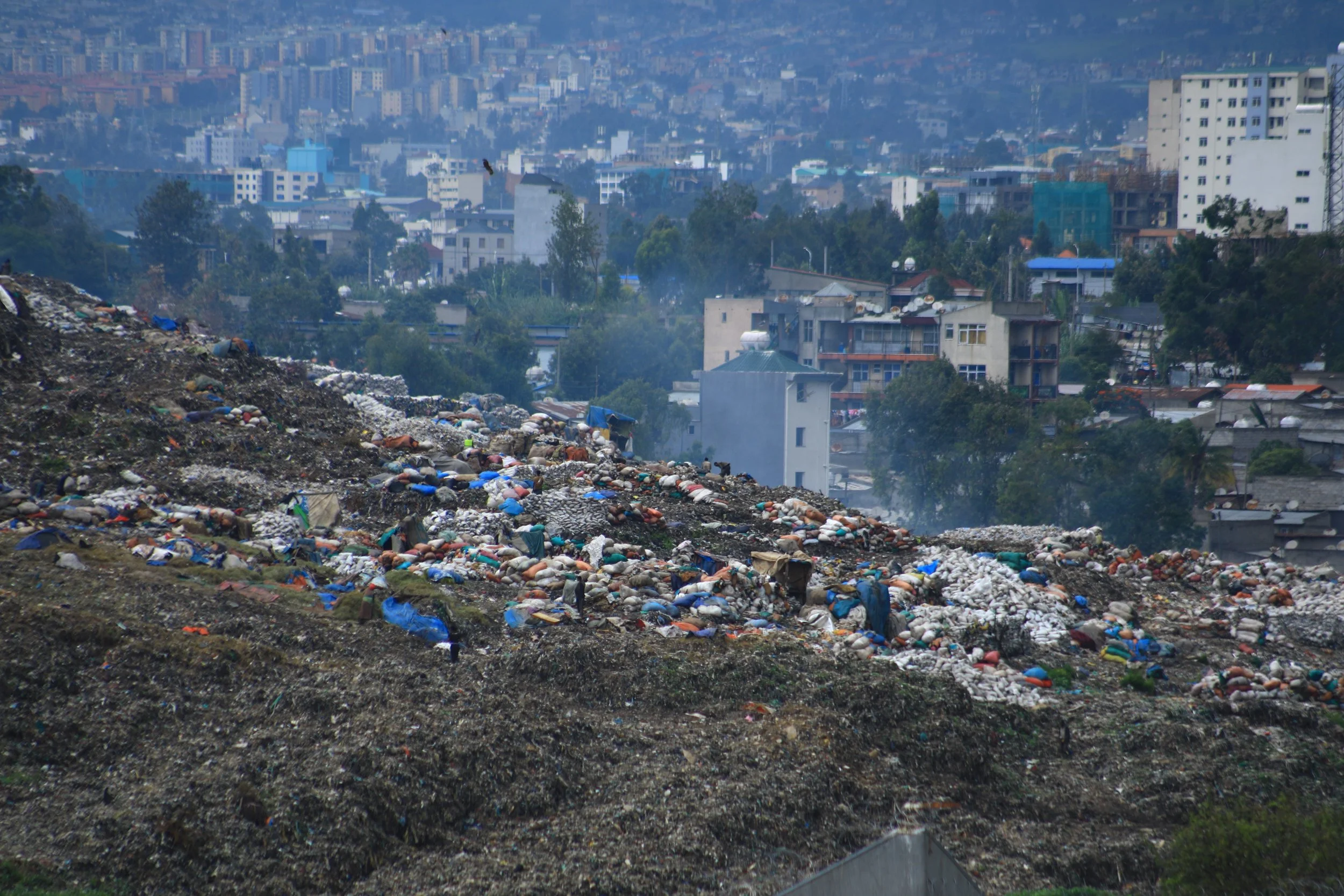
“The day a woman gives birth is the day she is most likely to die or be grievously injured.”
Kate Grant
Our Approach
DHI trains local laywomen to serve as Doulas and Childbirth Educators. Childbirth Educators and Doulas are passionate about caring for women and children and impacting their community with the love of Jesus.
These birth workers treat women with respect, compassion, and love, something all too rare for underrepresented women in our world. DHI equips CBEs and Doulas to improve maternal and newborn health by visiting pregnant and postpartum women in their homes, assessing their needs, identifying danger signs, and providing care until medical help can be reached. As much as possible, our doulas also accompany women to clinic appointments and offer continuous emotional and physical support during labor and delivery, both advocating for the mother’s needs and offering help and advice on comfort measures such as breathing, relaxation, movement, and positioning.
A nurse is also employed to supervise our doulas and to support the medical needs of mothers through basic medical checkups and care. The team helps mother access the medical services available to them in their local area and to reduce barriers that keep mothers and infants from receiving lifesaving care.
Meet Our Team
-
Ruth
In Country Director
-
Tihitina
Nurse Manager
-
Genet
Doula/ CBE
-
Beti
Doula/ CBE
-
Medi
Doula/ CBE
-
Enat
Lactation Consultant/ Cook
-
Yftu
Cook
-

Rahel
Cashier/ Purchaser
-

Shebilow
Guard
-

Liz
Executive Director
Follow us on social media
